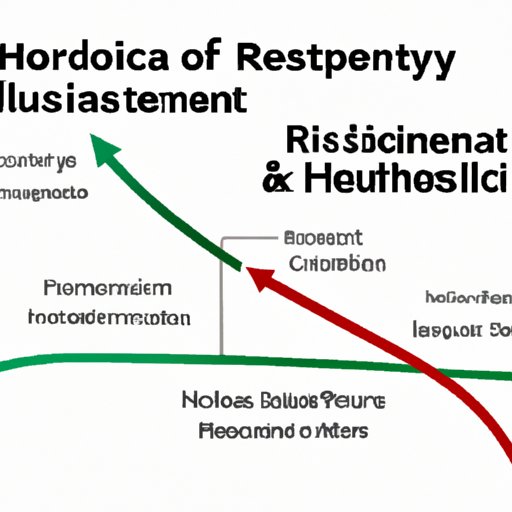
The Cost Crisis: An In-Depth Look at Why Healthcare Is So Expensive in the U.S.
Healthcare costs in the United States are among the highest in the world. With high premiums, co-pays, deductibles, and out-of-pocket expenses, Americans are paying more than ever for healthcare. The purpose of this article is to explore the factors contributing to the high cost of healthcare in the U.S., compare it with other developed countries, examine historical trends and policies, assess the impact of new medical technologies and their relationship to the U.S. economic model, and provide personal accounts of those affected by the high cost of healthcare.
Analyzing the Cost Breakdown of the US Healthcare System
To understand why healthcare is so expensive in the U.S., one must first examine the different entities involved in the healthcare system. These include pharmaceutical companies, insurance providers, hospitals, and healthcare providers. The costs associated with each entity contribute to the overall high cost of healthcare.
Pharmaceutical companies play a significant role in the high cost of healthcare, as some drugs are priced at exorbitant rates. Insurance providers also contribute to the high cost of healthcare, with premiums and deductibles increasing each year. Hospitals and healthcare providers often charge inflated rates for their services to compensate for the high cost of malpractice insurance and government regulations.
Comparing the US Healthcare System with Other Developed Countries
The United States is one of the few developed nations without a universal healthcare system. Comparing the U.S. system with other countries that have universal healthcare systems illustrates some of the key differences in terms of cost and quality. Countries with universal healthcare systems typically have lower healthcare costs and better health outcomes than the U.S. due to government regulations and bulk purchasing power.
Historical Evolution of the US Healthcare System
The history of the U.S. healthcare system provides insight into how the system has evolved over time. Historical policies, laws, and decisions have had a significant impact on healthcare costs today. The evolution of the system from cash pay to insurance-based to the implementation of the Affordable Care Act has created a complex system with many stakeholders, which has ultimately led to higher costs.
Cost of New Medical Technologies and Its Impact on Healthcare Industry
While new medical technologies offer exciting advancements in healthcare, they also contribute to the high cost of healthcare. The patent system allows pharmaceutical companies to charge high prices for new drugs and devices, and insurers often pass these costs on to consumers. Additionally, there is often not enough research done to compare the effectiveness of new technologies with older, cheaper treatments, leading to unnecessary costs.

Relationship Between Healthcare Pricing and the US Economic Model
The U.S. economic model, which emphasizes free-market capitalism, has played a significant role in shaping the high cost of healthcare in the country. In the U.S., healthcare is seen as a commodity rather than a right, and this perspective influences how healthcare is priced. The lack of universal healthcare also creates an environment where those who have insurance subsidize the care of those who do not, leading to higher costs overall.
Government Policies and Regulations in the Healthcare Industry
Government policies and regulations have a significant impact on the healthcare industry and its pricing. The Patient Protection and Affordable Care Act (ACA) has had a mixed effect on healthcare costs. While more individuals have access to healthcare, some argue that the ACA has led to higher healthcare costs for everyone.
Personal Accounts of Healthcare Cost Issues
Personal accounts offer insight into the impact of high healthcare costs on individuals. Many people struggle to afford the healthcare they need, and some forgo necessary care altogether due to the high cost. For healthcare professionals, high costs can lead to burnout, as they must navigate a complex system while trying to provide the best care to their patients.
Conclusion
The high cost of healthcare in the U.S. is a complex issue with many factors contributing to it. While there is no easy solution, acknowledging the problem and taking steps to address it is a vital first step. This may include advocating for universal healthcare, pushing for government regulation of pharmaceutical prices, and working to simplify the system as a whole. Personal action, such as communicating with elected officials and taking care of our own health, is also essential.




